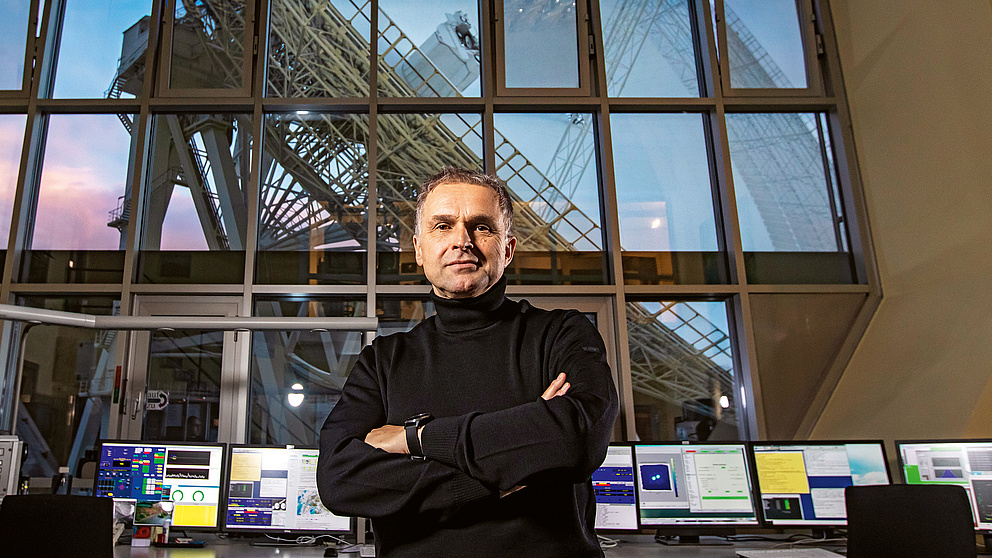

Contact
Press, Communications and Marketing
Tel.: +49 228 833-144
Fax: +49 228 833-441
presse[at]avh.de
The Humboldt Foundation’s Henriette Herz Scouting Programme offers research personalities in Germany the opportunity to select up to three excellent postdocs from abroad for their own teams on their own initiative. Radio astronomer Anton Zensus has now successfully completed the selection process. The Humboldt Research Award winner is the Director of the Max Planck Institute for Radio Astronomy in Bonn and known as one of the leading lights and founders of the radio telescope network, Event Horizon Telescope (EHT). The network collaboration recently managed to capture the second groundbreaking photo of a Black Hole. The star of German radio astronomy on his plans as a scout.
Humboldt Foundation: Professor Zensus, What made you apply to become a scout in the Henriette Herz Scouting Programme?
Anton Zensus: The very word “scout” already sounds enticing: it conjures up adventure and unexplored territory. For me, an invitation and call to choose an unconventional path to find new talents. The fact that the whole thing only involves minimal bureaucracy made the programme even more attractive.
The programme aims to enhance the diversity of the network. How do you want to help in your role as scout?
By not simply approaching the “usual suspects” but tracking down talents that haven’t been discovered yet. Those who haven’t yet had the courage to apply to elite universities or research institutes. In our radio astronomy network, we have a number of partner institutes that are perhaps not as visible as others, but which do excellent research. That’s where I’ll put out feelers especially.
Another sensational photo of a Black Hole just went viral – unthinkable without international cooperation. You work in a diverse network anyway. But why should the percentage of women in radio astronomy also be increased?
Sadly, our network is still not quite as diverse as you describe. There are still too few women, especially in leadership positions. There are reasons for this, and not just the frequently cited established networks. In Germany, you can often only reckon on getting a permanent position in science when the question of family has already been dealt with. This hits women harder than men.
I have resolved to nominate at least two women for the fellowship. I am confident that by doing so I’ll be able to help improve our chances in the fierce international contest to find the best women to take on leadership roles in fundamental research in Germany later on. It’s also important to me because we need them as top researchers and role models for girls and women students in Germany who are considering a career in research.
Do you already know who you are going to approach? How will you go about it?
No, I don’t yet know exactly who I’ll approach. That’s part of the scouting adventure. I’ll take my time and visit our partner institutes and talk to the young people myself. I want to listen to young talents at conferences and invite them to our group seminars. In person preferably. Because they need to know what to expect if they come and join us at the Max Planck Institute.
